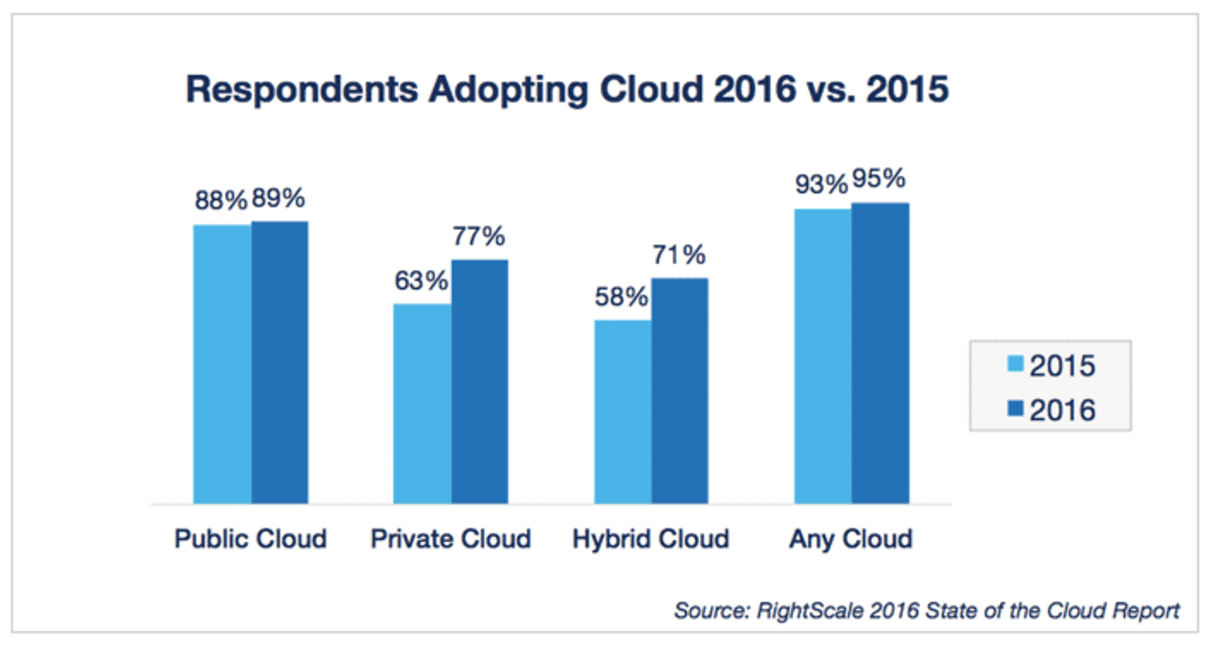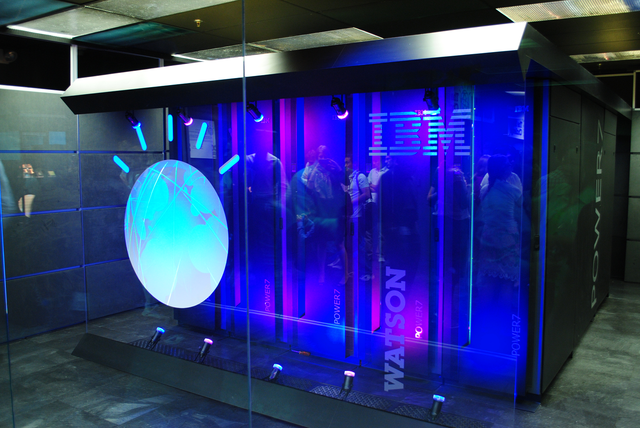Over the past few years, cloud computing has been evolving at a rapid rate. It is becoming the norm in today’s software solutions. Forrester believes that that cloud computing will be a $191 billion market by 2020. According to the 2016 State of Cloud Survey conducted by RightScale, 96% of its respondents are using the cloud, with more enterprise workloads shifting towards public and private clouds. Adoption in both hybrid cloud and DevOps have gone up as well.

So where could the cloud computing market be headed next? Could the next wave of cloud computing involve artificial intelligence? It certainly appears that way. In a market that is primarily dominated by four major companies – Google, Microsoft, Amazon, and IBM – AI could possibly disrupt the current dynamic.
In the past few years, there has been a surge of investment in AI capabilities in cloud platforms. The big four (Google, Microsoft, Amazon and IBM) are making huge strides in the AI world. Microsoft is currently offering more than twenty cognitive services such as language comprehension and analyzing images. Last year, Amazon’s cloud division added an AI service which lets people add analytical and predictive capabilities to their applications.
The current AI-cloud landscape can essentially be categorized into two groups: AI cloud services and cloud machine learning platforms.
AI Cloud Services
Example of AI cloud services involve technologies such as Microsoft Cognitive Services, Google Cloud Vision, and IBM Watson. In this type of model, organizations incorporate AI capabilities in applications without having to invest in expensive AI infrastructures.
Cloud Machine Learning Platforms
On the flip slide, there are cloud machine learning platforms. Machine learning is a method of data analysis which automates analytical model building. It enables for computers to find patterns automatically as well as areas of importance. Azure Machine Learning and AWS Machine Learning are examples of cloud machine learning platforms.

Recently IBM and Google having been making news in the AI realm and it reflects a shift within the tech industry towards deep learning. Just last month, IBM unveiled Project DataWorks, which is supposedly an industry first. It is a cloud-based data and analytics platform which can integrate different types of data and enable AI-powered decision making. The platform provides an environment for collaboration between business users and data professionals. Using technologies like Pixiedust and Brunel, users can create data visualizations with very minimal coding, allowing everyone in the business to gain insights at first look.
Earlier this month at an event in San Francisco, Google unveiled a family of cloud computing services which would allow any developer or business to use machine learning technologies that fuel some of Google’s most powerful services. This move is an attempt by Google to get a bigger foothold in the cloud computing market.
According to Sundar Pichai, chief Executive of Google, computing is evolving from a mobile-first to an AI-first world. So what would a next-generation AI-first cloud like? Simply put, it would be one built around AI capabilities. In the upcoming years, we could possibly see AI being key in improving cloud services such as computing and storage. The next wave of cloud computing platforms could also see integrations between AI and the existing catalog of cloud services, such as Paas or SaaS.
It remains to be seen whether AI can disrupt the current cloud computing market, but it will definitely influence and inspire a new wave of cloud computing platforms.
By Joya Scarlata





